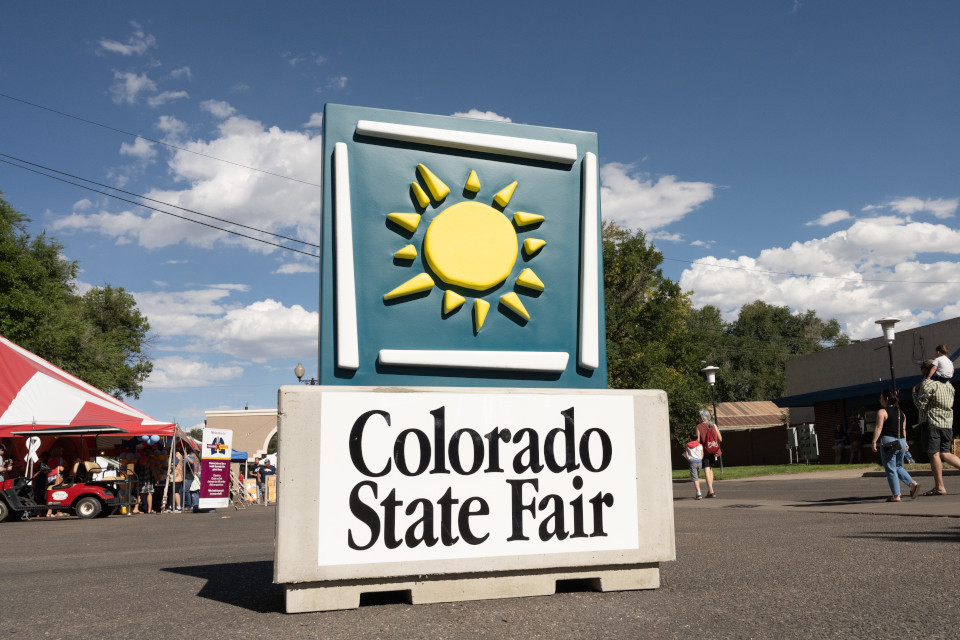
Don Thorn has been engaged in rural Colorado his entire life — from growing up on a farm in Yuma, to working as a high school agriculture teacher and FFA advisor in McClave, to serving as executive director of the Colorado FFA Foundation.
Thorn recently joined Colorado State University as the manager of External Relations-Rural Colorado. The new role is focused on strengthening CSU’s longstanding ties with rural Colorado, an endeavor he views as critical.
“You hear about the aging farmer and rancher, but I have met with next generation farmers that are really looking to be innovative and willing to honor their traditions,” Thorn said. “And I think that’s why being connected to them is important.”
As he prepared to head out for the 2023 Colorado State Fair, Thorn spoke with SOURCE about this new role and the importance of CSU’s rural connections.
Most recently, you were the executive director of the Colorado FFA Foundation. How did that role translate into your current position, and what was your experience like working with CSU in that previous role?
When I started with the FFA Foundation 14 years ago, I lived in southeast Colorado, and as part of my job, I got in my car and drove north and west to build relationships. And now I live up west, and I’m driving east and southeast to go out and build relationships. So, it’s a skill set that has transitioned well because it’s all about building relationships, building trust and connecting with people.
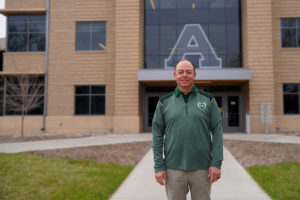
As for the relationship that I had with CSU, well that depends how far back you want to go. I graduated from CSU and have two degrees from there. But I also worked closely with CSU through FFA. One of the biggest projects was working jointly with CSU to raise the money to build the CoBank Center for Agricultural Education at ARDEC (Agricultural Research and Development Center).
I felt like it really revealed a willingness to work together and a willingness to be creative and committed to agricultural education and the citizens of Colorado and beyond. It also taught me that CSU’s a big outfit and there’s a lot going on — at the time that we were fundraising for the CoBank Center there were over $1 billion worth of buildings being built on campus, and we were the smallest project out there. But it showed this willingness to work together and a true dedication to agriculture.
You grew up in Yuma and worked as a high school teacher and an FFA advisor in McClave. How will your experience in those communities impact your role here, and why is it so important for CSU to focus on these smaller communities in rural Colorado?
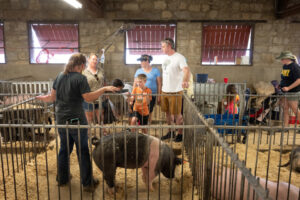
I think it’s core to the land-grant mission. I know that (phrase) gets used a lot. I heard something recently that I really like, there’s information and there’s implementation and then there’s a gap in the middle. And I think that’s where universities and the land-grant mission live.
It’s exciting that CSU is concerned and excited and realizes that all of Colorado and beyond in agricultural spaces is important. And the land-grant mission does really move to that to say, okay, how do we utilize all these resources that we have and make them good for every citizen of our state regardless of whether you’re in a community of 5,000 or 900.
This new role at CSU is focused on strengthening the University’s ties with rural Colorado. What does that look like to you? Where are you going to be focusing your efforts first?
It’s rural, and rural is a big word and a big space in our state. It covers a lot of geography. But I think more importantly than geography is working to have this continual presence in these spaces and serve as a connector in both directions. What I’ve already learned in just a month or so on the job is that there is an appreciation from people in rural spaces to have someone show up to see them.
CSU Engagement and Extension is in every county and doing great things. I am finding it also helps to have someone as a connector working to draw lines between the work being done locally and on the Fort Collins campus. So, I’m doing some of the advance work to find the people that want to connect that may not be connected already, that have an affinity for the University and the things that they’re doing and treating it almost like a territory where I can show up and meet and connect with people on a continual cadence.
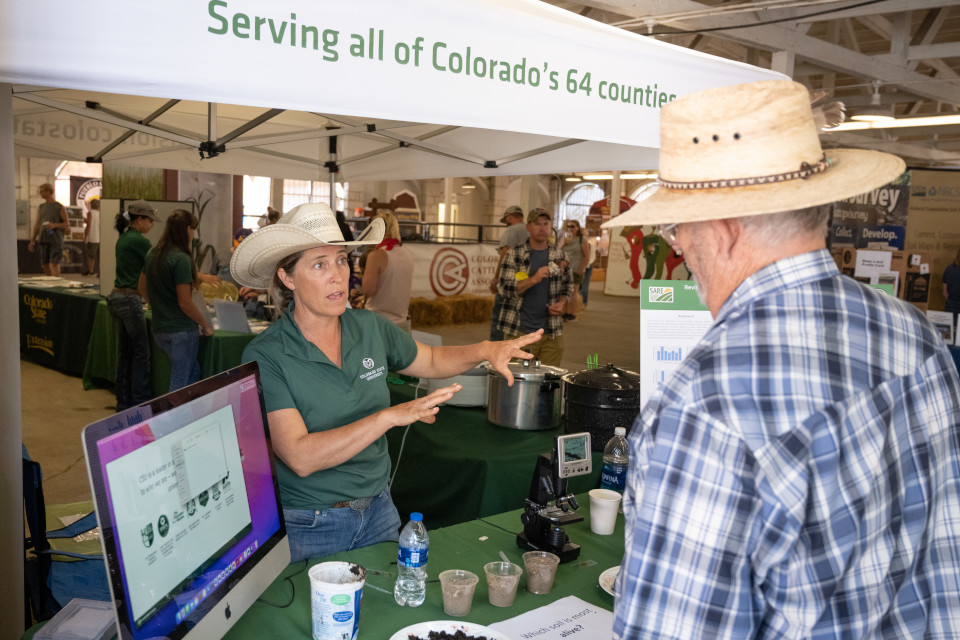
CSU has longstanding, historic ties with rural Colorado. How are you working with that already established connection?
Creating authentic connections between people in rural spaces and people at the University can have a positive impact. It’s really grassroots. It’s that small level of connecting a producer to a researcher or a department head to a group of folks who will be open and honest and thoughtful about what’s going on. That’s the goal, the connections, the authentic connections to something that people may feel has gotten farther away. But maybe by having one of their own come and talk to them, someone who grew up in northeast Colorado and lived in southeast Colorado and has relatability hopefully that can lead to a positive connection.
With the Colorado State Fair coming up beginning Aug. 25, what opportunities do you see there for connecting rural youth to CSU?
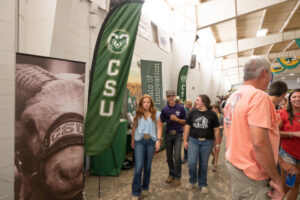
I’m really looking forward to the state fair. It’s a great chance to see so many people from across the state. There are so many different opportunities from ag education to connecting various departments with young 4-H exhibitors. But I also think there’s an opportunity to promote everything CSU has to offer for everyone. A big part of the College of Ag’s mission has been the motto “Come to the table.” That’s what I hope to do, invite people to the table and ask if they want to help be a sounding board, and to help me connect to people in their communities.